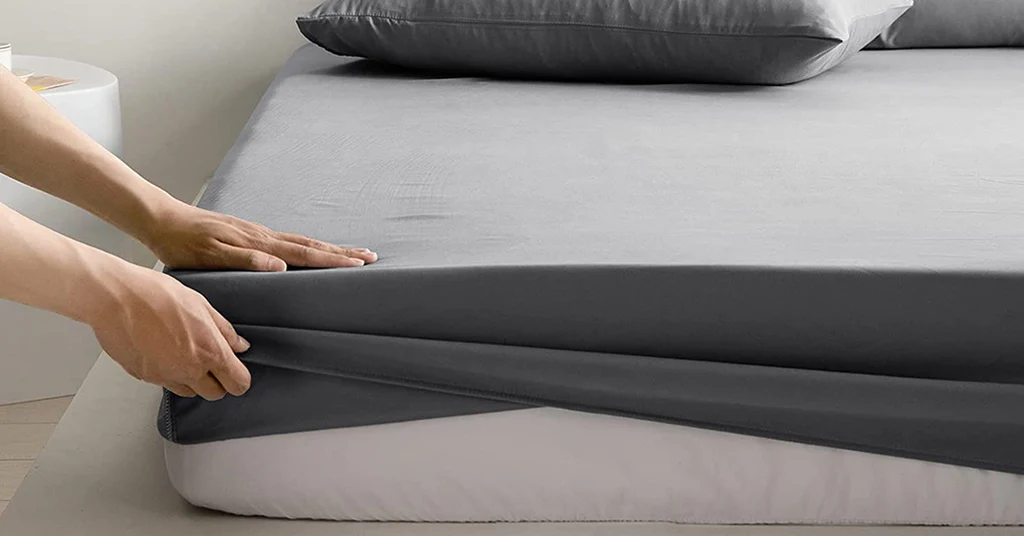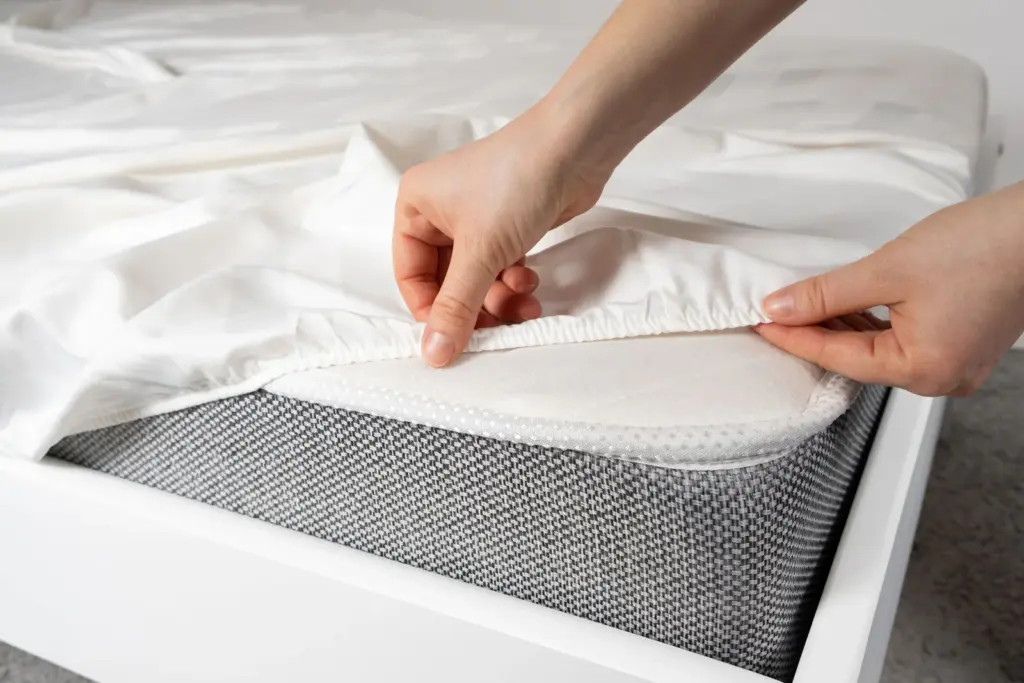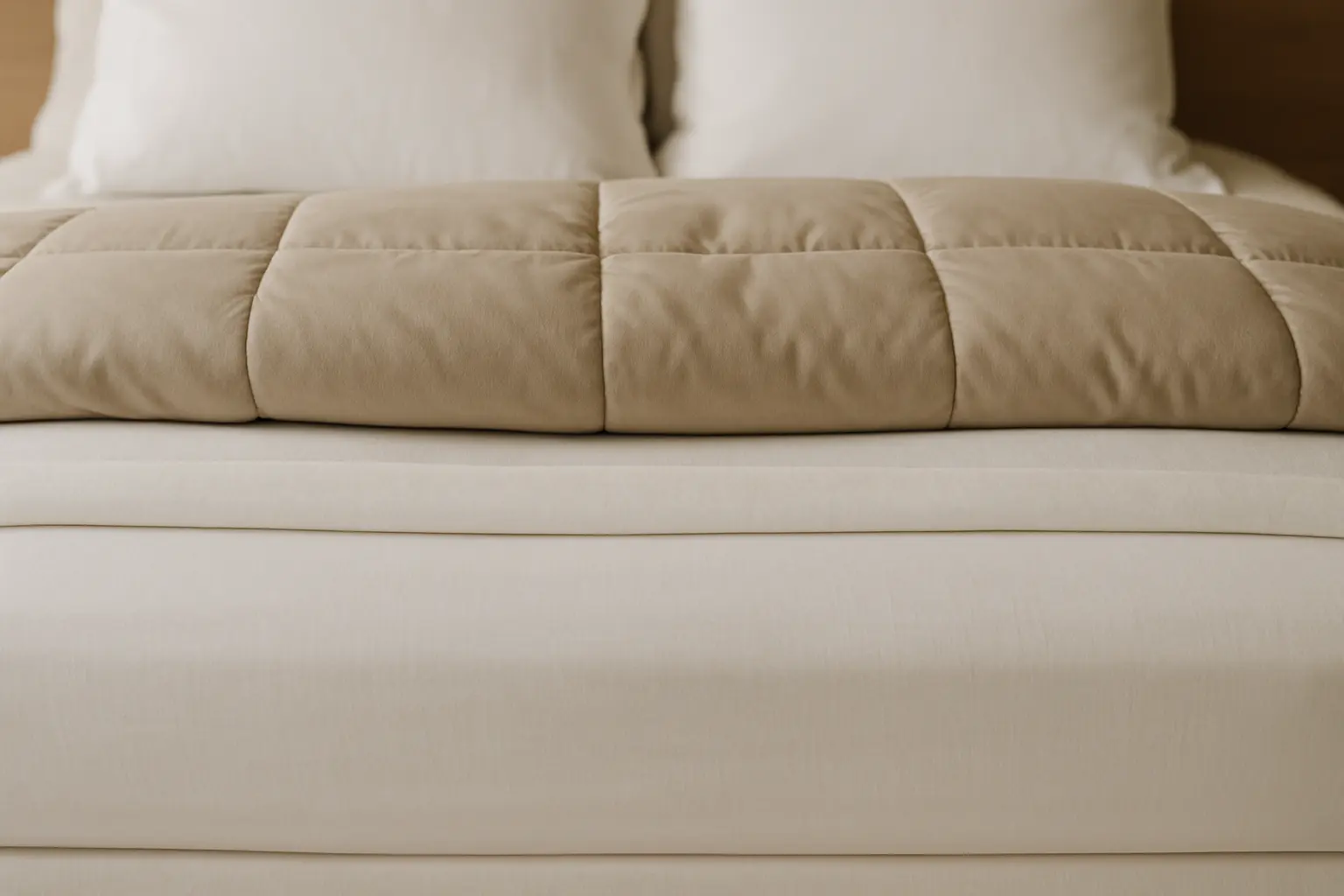When it comes to making a bed, the conversation often turns to flat sheets and fitted sheets—but what exactly are they, and do you need both? Whether you’re a homeowner seeking better sleep comfort or a hotelier aiming for a luxurious guest experience, understanding the difference between these two bedding essentials is key.
In this blog, we’ll break down the features, benefits, and best use cases for flat sheets and fitted sheets, helping you decide which one is right for your bedding needs.
What Is a Fitted Sheet?
A fitted sheet, also known as a bottom sheet, is designed to cover and protect your mattress. It comes with elasticized corners or edges, allowing it to hug the mattress snugly and stay in place—even if you toss and turn throughout the night.
Key Features:
- Elastic corners or full perimeter elastic
- Designed to fit specific mattress sizes and depths
- Covers the mattress directly
Pros:
- Stays in place and doesn’t bunch up
- Protects the mattress from sweat, spills, and dust
- Easier and quicker to use during bed-making
Cons:
- Must match mattress size and depth precisely
- Can be more difficult to fold neatly
- Can lose elasticity over time

What Is a Flat Sheet?
A flat sheet, also called a top sheet, is a rectangular piece of fabric placed between your body and the blanket or comforter. It serves as a soft, breathable layer and can also double as a lightweight cover during warmer seasons.
Key Features:
- Flat rectangular shape with hemmed edges
- Lies on top of the fitted sheet
- Tucked under the mattress at the bottom and sides (optional)
Pros:
- Adds an extra layer of comfort and warmth
- Helps keep comforters and blankets cleaner
- Easier to fold, clean, and store
Cons:
- May shift or bunch up overnight
- Adds an extra step to making the bed
- Not preferred by minimalists or hot sleepers

Should You Use Both Flat and Fitted Sheets?
That depends on your preferences and usage:
| Usage Scenario | Best Sheet Choice |
|---|---|
| Luxury bedding or hotels | Both fitted and flat sheets |
| Minimalist or casual sleepers | Fitted sheet only |
| Hot climates or summer bedding | Flat sheet only (as a lightweight cover) |
| Custom comfort or layering | Use both for flexibility and hygiene |
Flat Sheet vs. Fitted Sheet: Quick Comparison
| Feature | Fitted Sheet | Flat Sheet |
|---|---|---|
| Purpose | Covers mattress | Covers sleeper |
| Shape | Fitted with elastic | Flat, rectangular |
| Use | Base layer | Middle or top layer |
| Fit | Snug fit on mattress | Tucked under mattress |
| Main Benefit | Doesn’t slip | Extra hygiene and layering |
Final Thoughts
If you’re aiming for a neat, hotel-style bed or want to protect your comforter, adding a flat sheet to your bedding setup is worth it. However, if simplicity is your priority, a well-fitted sheet may be all you need.
As a professional bedding manufacturer, we understand the importance of both sheet types and offer high-quality, customizable flat and fitted sheets in a range of fabrics, thread counts, and sizes. Whether you’re sourcing for a retail brand, hotel, or e-commerce line, we can help you meet your customer’s sleep needs.
Need Custom Bedding Solutions?
Contact Hangzhou Yintex Co., Ltd. to explore OEM/ODM sheet manufacturing tailored to your brand and audience.


Leave a Reply